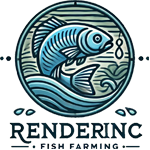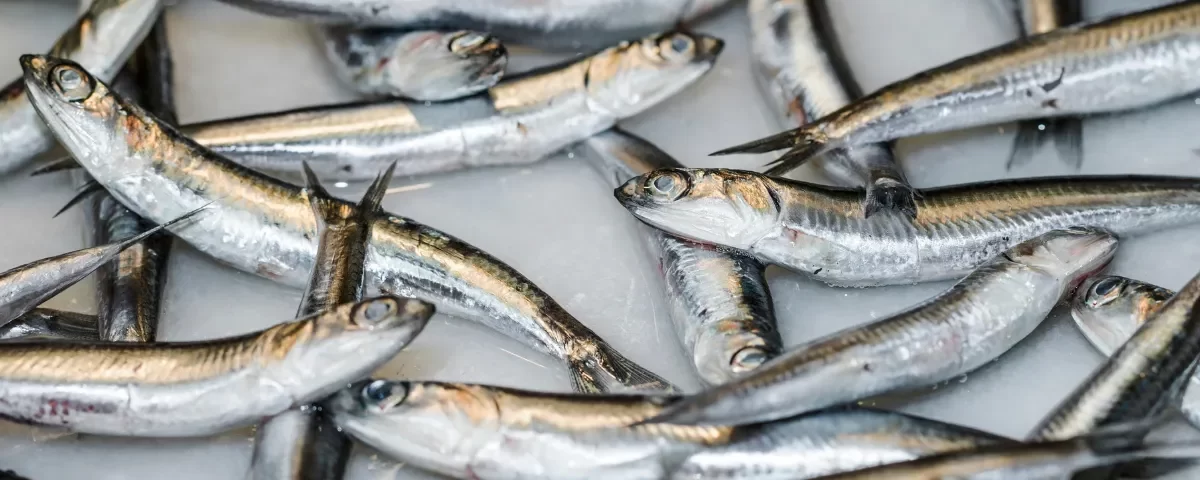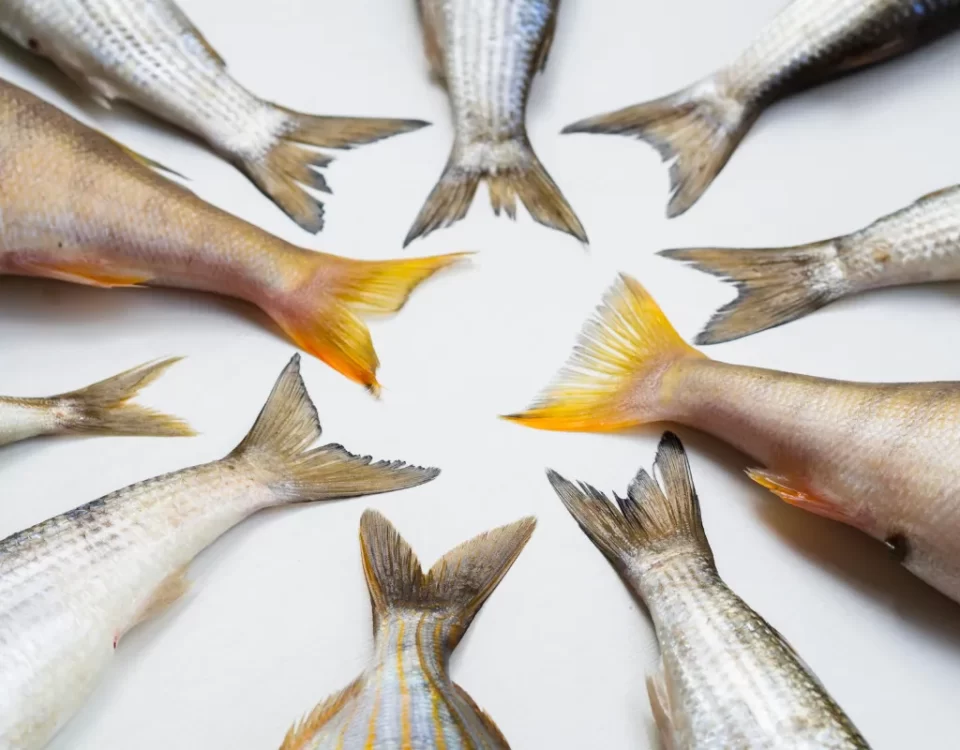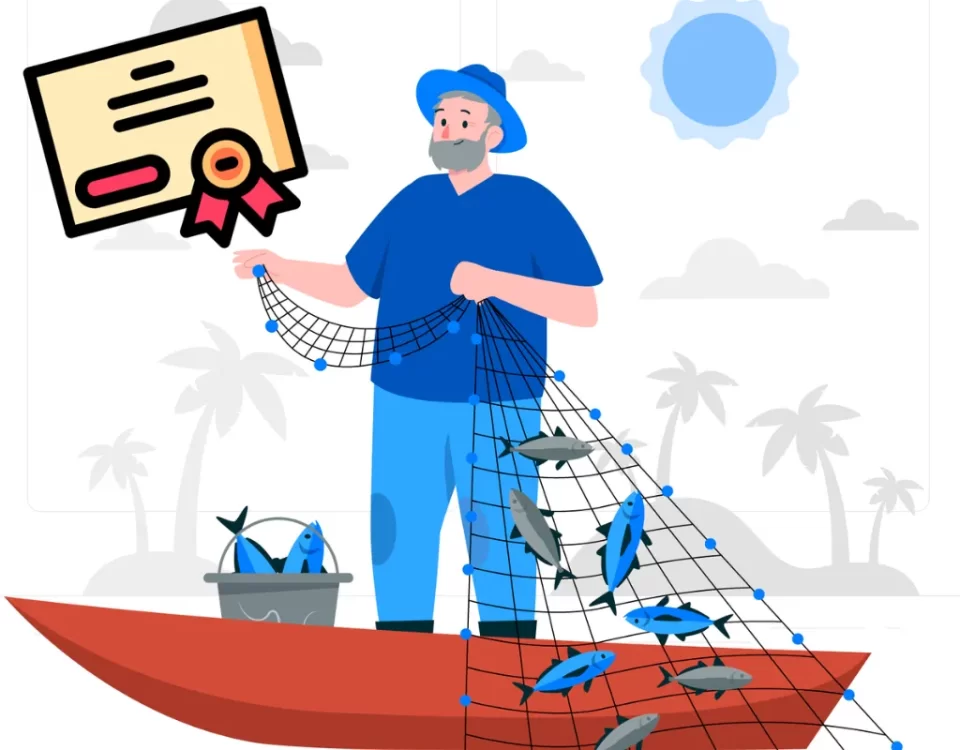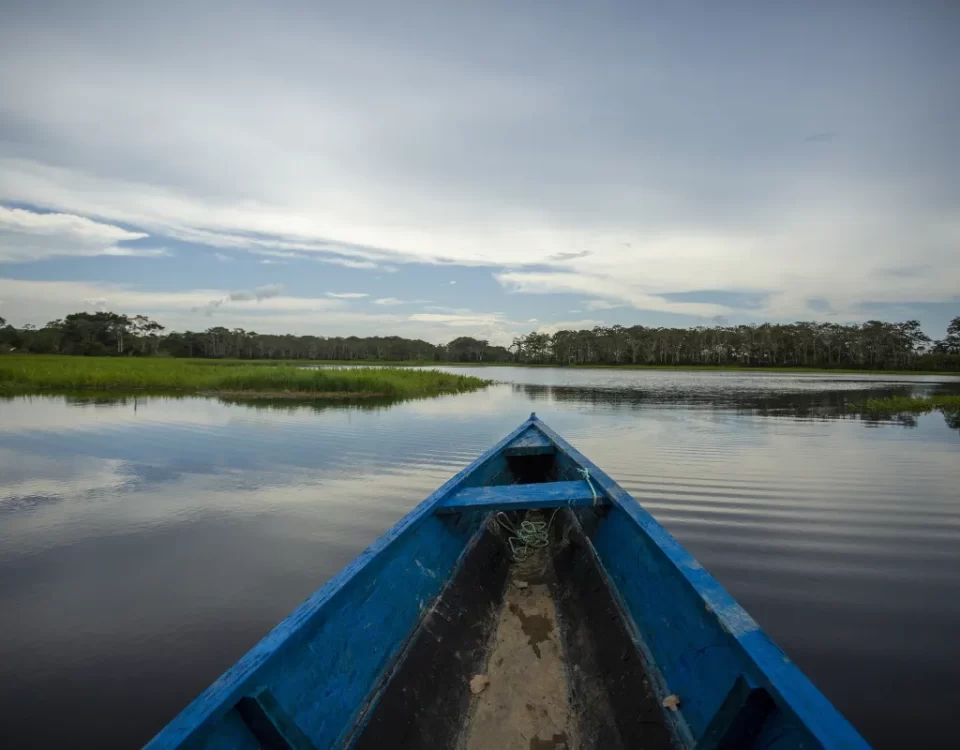How to Achieve Eco-Friendly Fish Farming Practices

How to Start a Profitable Fish Farming Business
agosto 17, 2024
Balancing Ecosystems in Aquaculture for Maximum Sustainability
agosto 21, 2024In our ever-evolving world, the importance of implementing eco-friendly practices within various industries cannot be overstated. Fish farming, also known as aquaculture, is no exception. As the demand for seafood continues to rise, so does the need for sustainable and environmentally conscious methods of fish farming.
In this article, we delve into the realm of eco-friendly fish farming practices. We will explore the benefits of such practices, the challenges they may pose, and most importantly, provide valuable insights on how fish farmers can embrace eco-friendliness in their operations. By adopting these practices, not only can fish farmers contribute to the preservation of our planet’s delicate ecosystems, but they can also secure a future for their businesses in an increasingly environmentally-conscious market.
Importance of Eco-Friendly Fish Farming Practices
One of the primary reasons why eco-friendly fish farming practices have gained traction in recent years is the pressing need to address the environmental impact of traditional aquaculture methods. Conventional fish farming often involves the use of chemicals, antibiotics, and pesticides that can harm aquatic ecosystems and pose risks to human health. By transitioning to sustainable practices, fish farmers can mitigate these negative impacts and pave the way for a more resilient and harmonious coexistence between aquaculture and the environment.
Key Points Covered in the Article
Throughout this article, we will explore various strategies and techniques that fish farmers can adopt to promote eco-friendliness in their operations. From optimizing feed formulations to reducing waste production, each aspect of sustainable fish farming will be dissected and discussed in detail. Additionally, we will shed light on the importance of monitoring water quality, minimizing energy consumption, and embracing innovative technologies that can revolutionize the way fish farming is conducted.
By the end of this article, readers will have a comprehensive understanding of the significance of eco-friendly fish farming practices and gain practical insights on how to implement these strategies within their own aquaculture businesses. Let us embark on this journey towards a more environmentally-conscious and sustainable future for fish farming.
Benefits of Eco-Friendly Fish Farming
In the realm of fish farming, the shift towards eco-friendly practices not only benefits the environment but also offers a myriad of advantages to both fish farmers and consumers. Embracing sustainable methods in fish farming brings about a range of benefits that ripple across various aspects of the industry, from ecological preservation to economic prosperity and human health.
Environmental Benefits
One of the key advantages of eco-friendly fish farming lies in its positive impact on the environment. By implementing sustainable practices, such as reducing the usage of chemicals and antibiotics, fish farmers can significantly decrease water pollution levels in surrounding aquatic ecosystems. This, in turn, helps preserve the delicate balance of aquatic life and protects the biodiversity of marine habitats. Additionally, eco-friendly fish farming methods often prioritize resource efficiency, leading to a decreased carbon footprint and overall sustainability in the industry.
Economic Benefits
Beyond its environmental advantages, embracing eco-friendly fish farming practices can also prove to be financially rewarding for fish farmers in the long run. While the initial investment in transitioning to sustainable methods may require some financial commitment, the cost savings achieved through reduced resource consumption and improved operational efficiency can lead to substantial economic gains over time. Furthermore, as consumer demand for sustainably sourced fish continues to rise, fish farmers who adopt eco-friendly practices are well-positioned to tap into lucrative markets and build a solid reputation for environmental stewardship.
Health Benefits for Consumers
In addition to benefiting the environment and the economy, eco-friendly fish farming also holds significant health advantages for consumers. Fish cultivated through sustainable methods are less likely to be exposed to harmful chemicals or pollutants, making them a safer and healthier choice for consumption. By opting for sustainably farmed fish, consumers can enjoy peace of mind knowing that they are supporting environmentally responsible practices while also safeguarding their own well-being. This focus on health-conscious food choices aligns with the growing trend towards sustainable eating habits and underscores the importance of prioritizing both personal and planetary health in the food production industry.
Understanding Sustainable Fish Farming
Sustainable fish farming is a method of cultivating fish in a manner that minimizes environmental impact while ensuring the long-term viability of the industry. Unlike traditional fish farming practices that often prioritize high yields and profit margins at the expense of the environment, sustainable fish farming aims to strike a delicate balance between protecting natural resources and meeting the growing global demand for seafood.
Definition of Sustainable Fish Farming
Sustainable fish farming involves implementing ecologically responsible methods that promote the health and well-being of both the fish being raised and the surrounding ecosystem. This approach encompasses various factors such as water quality management, waste reduction, conservation of biodiversity, and ethical treatment of fish. By adopting sustainable practices, fish farmers can help mitigate the negative impacts of aquaculture on the environment and contribute to the overall health of aquatic ecosystems.
Differences Between Traditional and Sustainable Practices
The key difference between traditional fish farming practices and sustainable methods lies in their approach to resource utilization and environmental stewardship. Traditional fish farming often relies heavily on chemical inputs, antibiotics, and unsustainable feed sources to boost production, leading to pollution, disease outbreaks, and habitat degradation. In contrast, sustainable fish farming emphasizes natural solutions such as ecosystem-based management, organic feeds, and integrated farming systems to reduce environmental harm and promote ecological resilience.
Balancing Environmental and Economic Factors
Achieving sustainability in fish farming requires a careful balance between environmental conservation and economic viability. While it may seem challenging to prioritize both factors simultaneously, successful sustainable fish farming operations have demonstrated that profitability and environmental stewardship can go hand in hand. By investing in innovative technologies, responsible management practices, and stakeholder engagement, fish farmers can create a win-win situation where healthy ecosystems support robust production, benefiting both the industry and the planet.
Implementing Best Practices in Eco-Friendly Fish Farming
In order to achieve eco-friendly fish farming practices, it is crucial to implement a variety of best practices that prioritize sustainability and environmental consciousness. Through a combination of innovative techniques and thoughtful approaches, fish farmers can significantly reduce their ecological footprint while maintaining a thriving aquaculture operation.
Use of Natural Feeds and Avoiding Harmful Chemicals
One of the cornerstones of eco-friendly fish farming is the use of natural feeds that are sourced ethically and sustainably. By incorporating feeds that are free from antibiotics, growth hormones, and synthetic chemicals, fish farmers can ensure the overall health and well-being of their stock. Utilizing natural feeds such as algae, insects, and plant-based proteins not only promotes healthier fish growth but also contributes to a more balanced ecosystem within the farm.
Proper Waste Management Techniques
Effective waste management techniques play a vital role in minimizing the environmental impact of fish farming operations. Implementing practices such as recirculating aquaculture systems (RAS) helps to maintain water quality and reduce the release of pollutants into surrounding water bodies. By properly treating and recycling waste products, farmers can limit nutrient runoff and create a more sustainable farming environment.
Conservation of Resources such as Water and Energy
Conserving essential resources like water and energy is paramount in eco-friendly fish farming. Implementing water recycling systems and utilizing renewable energy sources such as solar power can help reduce the overall energy consumption of a fish farm. By optimizing water usage through efficient systems and implementing energy-saving technologies, farmers can significantly decrease their environmental impact while maintaining high productivity levels.
Ensuring Animal Welfare and Reducing Stress in Farmed Fish
Animal welfare is a critical aspect of eco-friendly fish farming practices. Farmers should prioritize the well-being of their fish by providing adequate space, proper nutrition, and a stress-free environment. By reducing stocking densities, implementing effective disease prevention measures, and minimizing handling stress, farmers can enhance the overall health and resilience of their fish stock. Prioritizing animal welfare not only improves the quality of the end product but also aligns with ethical farming practices that respect the natural behavior and needs of the fish.
Technology and Innovations in Eco-Friendly Fish Farming
The advancement of technology has revolutionized the landscape of fish farming, paving the way for more eco-friendly practices. One of the cutting-edge technologies in this realm is the recirculating aquaculture system (RAS). RAS is a closed-loop system that recycles and treats water within the fish tanks, significantly reducing water usage and minimizing the discharge of harmful pollutants into the environment. This innovative approach to fish farming not only promotes sustainable water management but also ensures a healthier environment for the fish.
To maintain optimal conditions for both the water quality and fish health within RAS, the use of monitoring systems has become essential. These systems utilize sensors to constantly monitor parameters such as temperature, dissolved oxygen, ammonia levels, and more. By providing real-time data, fish farmers can promptly address any issues that may arise, thereby improving overall efficiency and minimizing negative environmental impacts. The integration of monitoring systems into fish farming operations exemplifies how technology can be harnessed to achieve ecological sustainability in aquaculture.
Innovations in feed production have also played a crucial role in enhancing the eco-friendliness of fish farming. Sustainable feed formulations that incorporate alternative proteins and ingredients sourced from renewable and non-destructive sources have gained popularity. By reducing reliance on wild-caught fish for feed, these innovations not only decrease pressure on marine ecosystems but also help mitigate the carbon footprint of fish farming operations. With a focus on environmental responsibility, the evolution of feed production in the aquaculture industry is driving positive change towards sustainable practices.
The synergistic integration of technology and innovation in eco-friendly fish farming represents a paradigm shift towards a more sustainable and environmentally conscious approach to aquaculture. As the industry continues to evolve, it is imperative for fish farmers to embrace these advancements and adopt practices that prioritize ecological integrity and long-term viability. By leveraging the power of technology and embracing innovations, the future of fish farming can be both productive and environmentally responsible.
Regulatory Framework and Certification Programs
In the realm of fish farming, the establishment of a robust regulatory framework is essential to ensure that industry practices align with environmental conservation and sustainability goals. Various government bodies worldwide have instituted regulations to govern fish farming operations, covering aspects such as water quality management, stocking densities, feed composition, and disease control. These regulations serve as a guideline for fish farmers to operate within responsible boundaries, minimizing negative impacts on aquatic ecosystems.
Moreover, certification programs play a pivotal role in promoting ecologically sound fish farming practices. Entities such as the Aquaculture Stewardship Council (ASC) and the Global Aquaculture Alliance (GAA) offer certification to farms that adhere to stringent sustainability and ethical standards. Achieving certification from these programs signifies a commitment to upholding best practices in aquaculture, benefiting both the environment and consumers who seek sustainable seafood options.
Government Regulations on Fish Farming Practices
Government regulations on fish farming practices vary across regions, reflecting diverse environmental concerns and priorities. For instance, some regulations may focus on waste management, stipulating limits on the discharge of effluents into water bodies to prevent pollution. Others may emphasize the use of antibiotics in aquaculture, aiming to reduce the risk of antimicrobial resistance in aquatic environments. By complying with these regulations, fish farmers contribute to the overall health of marine ecosystems.
Certification Programs for Sustainable Aquaculture
Certification programs like the ASC and GAA provide a framework for sustainable aquaculture by setting standards related to responsible farming practices. These standards encompass various aspects, including environmental impact assessment, social responsibility, and traceability of products. By obtaining certification, fish farms demonstrate their commitment to sustainability, which can enhance marketability and consumer trust in their products.
Ensuring Sustainability Through Compliance
Compliance with regulatory frameworks and certification programs is crucial for the long-term sustainability of fish farming operations. By adhering to established standards and best practices, fish farmers help mitigate the environmental footprint of aquaculture activities, preserving marine ecosystems for future generations. Ultimately, the pursuit of eco-friendly fish farming practices through regulatory compliance and certification not only benefits the environment but also supports a more resilient and ethical seafood industry.
Case Studies of Successful Eco-Friendly Fish Farms
In the realm of sustainable aquaculture, several pioneering fish farms have emerged as beacons of environmentally conscious practices. One standout example is Pacific Reef Fisheries in Australia, which has garnered acclaim for its innovative approach to eco-friendly fish farming. By implementing a system known as Integrated Multi-Trophic Aquaculture (IMTA), the farm has managed to effectively minimize its environmental footprint while maximizing production.
Challenges and Triumphs
Pacific Reef Fisheries encountered numerous challenges on its journey towards sustainability. One major obstacle was the issue of waste management, as traditional fish farming methods often result in an excess of nutrient-rich effluent polluting surrounding waters. Through strategic planning and investment in cutting-edge filtration systems, the farm was able to mitigate this problem, turning it into a valuable resource for fertilizing marine plants.
Positive Impacts
The adoption of eco-friendly practices at Pacific Reef Fisheries has demonstrated a host of positive impacts on both the environment and the local community. By maintaining a delicate ecosystem balance through IMTA, the farm has effectively reduced the occurrence of harmful algal blooms and improved overall water quality in the area. Furthermore, the farm’s commitment to sustainability has fostered community engagement, with residents embracing the farm as a responsible steward of marine resources.
Continuing across the globe, Bureo, a fish farm located in Chile, has made significant strides in promoting sustainable aquaculture through its innovative use of recycled materials in fish farming equipment. By collecting and repurposing discarded fishing nets into pens and cages, Bureo has not only reduced plastic waste but also provided a blueprint for how upcycling can enhance sustainability in the aquaculture industry.
Challenges and Future of Eco-Friendly Fish Farming
As the demand for sustainable and eco-friendly fish farming practices grows, there are various challenges that both farmers and the industry as a whole must overcome. One common challenge is the initial financial investment required to transition from conventional to eco-friendly methods. Implementing new technologies and sustainable practices can be costly, especially for small-scale fish farmers with limited resources. Additionally, convincing traditional farmers to change their practices and adopt more environmentally friendly methods can be met with resistance due to familiarity and the fear of reduced profits.
Addressing Common Challenges in Implementing Sustainable Practices
To tackle these challenges, it is crucial for the government to provide incentives and subsidies to support the adoption of eco-friendly fish farming practices. Financial assistance in the form of grants or low-interest loans can help farmers offset the initial costs of transitioning to sustainable methods. Training programs and educational initiatives can also play a significant role in equipping farmers with the necessary knowledge and skills to implement eco-friendly practices effectively. By addressing these challenges head-on and providing support to farmers, the industry can gradually shift towards a more sustainable future.
Discussing the Potential for Growth and Innovation in the Eco-Friendly Fish Farming Industry
Despite the challenges, the future of eco-friendly fish farming holds immense potential for growth and innovation. As consumers become more conscious of the environmental impact of their food choices, there is a growing demand for sustainably farmed seafood. This trend presents an opportunity for fish farmers to differentiate themselves in the market by adopting eco-friendly practices and certifications that highlight their commitment to sustainability. Moreover, advancements in technology and research are driving innovation in aquaculture, enabling farmers to enhance production efficiency while minimizing environmental impact.
Encouraging Farmers and Consumers to Support Sustainable Fish Farming Initiatives
It is essential for both farmers and consumers to recognize the importance of supporting sustainable fish farming initiatives. By choosing seafood products that are certified as eco-friendly, consumers can contribute to the preservation of marine ecosystems and the promotion of responsible aquaculture practices. Farmers, on the other hand, can play a pivotal role in driving change within the industry by embracing sustainable methods and advocating for regulatory reforms that prioritize environmental conservation. Through collective efforts and a shared commitment to sustainability, the future of eco-friendly fish farming can be bright and promising.
Recap of Key Points
Throughout this article, we have delved deep into the realm of eco-friendly fish farming practices. We have explored the significance of adopting sustainable methods in aquaculture, emphasizing the need to prioritize the health of our oceans and the well-being of future generations. From the utilization of recirculating aquaculture systems to the implementation of organic feed sources, we have uncovered various strategies to reduce the environmental impact of fish farming.
Emphasizing the Importance of Eco-Friendly Fish Farming
It is paramount to understand that the future of fish farming lies in our ability to cultivate a sustainable and environmentally conscious industry. Eco-friendly practices play a crucial role in ensuring the longevity of aquaculture operations while safeguarding the delicate balance of marine ecosystems. By embracing innovative technologies and eco-conscious methodologies, we can pave the way for a brighter, more sustainable future for all.
Call to Action for Sustainable Practices
As stewards of the environment, it is our responsibility to advocate for and support sustainable practices in the fish farming industry. We must urge policymakers, industry stakeholders, and consumers alike to prioritize environmental conservation and invest in the future of aquaculture. By choosing to source responsibly farmed fish and demanding transparency in the seafood supply chain, we can drive positive change and foster a more sustainable approach to fish farming.
Promoting a Sustainable Future
In conclusion, let us stand together in solidarity with our oceans and the diverse marine life that inhabits them. By championing eco-friendly fish farming practices, we not only ensure a bountiful harvest for generations to come but also uphold our commitment to environmental stewardship. Let us take action today to preserve the vitality of our seas and promote a sustainable future built on the principles of conservation and sustainability.

Michael Rivers is an experienced aquaculture enthusiast with over a decade of hands-on knowledge in fish farming and sustainable aquatic systems. Passionate about promoting eco-friendly practices, he shares his expertise on fish breeding, water management, and the latest advancements in aquaculture technology. Through his blog, Michael aims to help both beginners and seasoned fish farmers achieve success in their ventures while contributing to the growth of sustainable food production.
